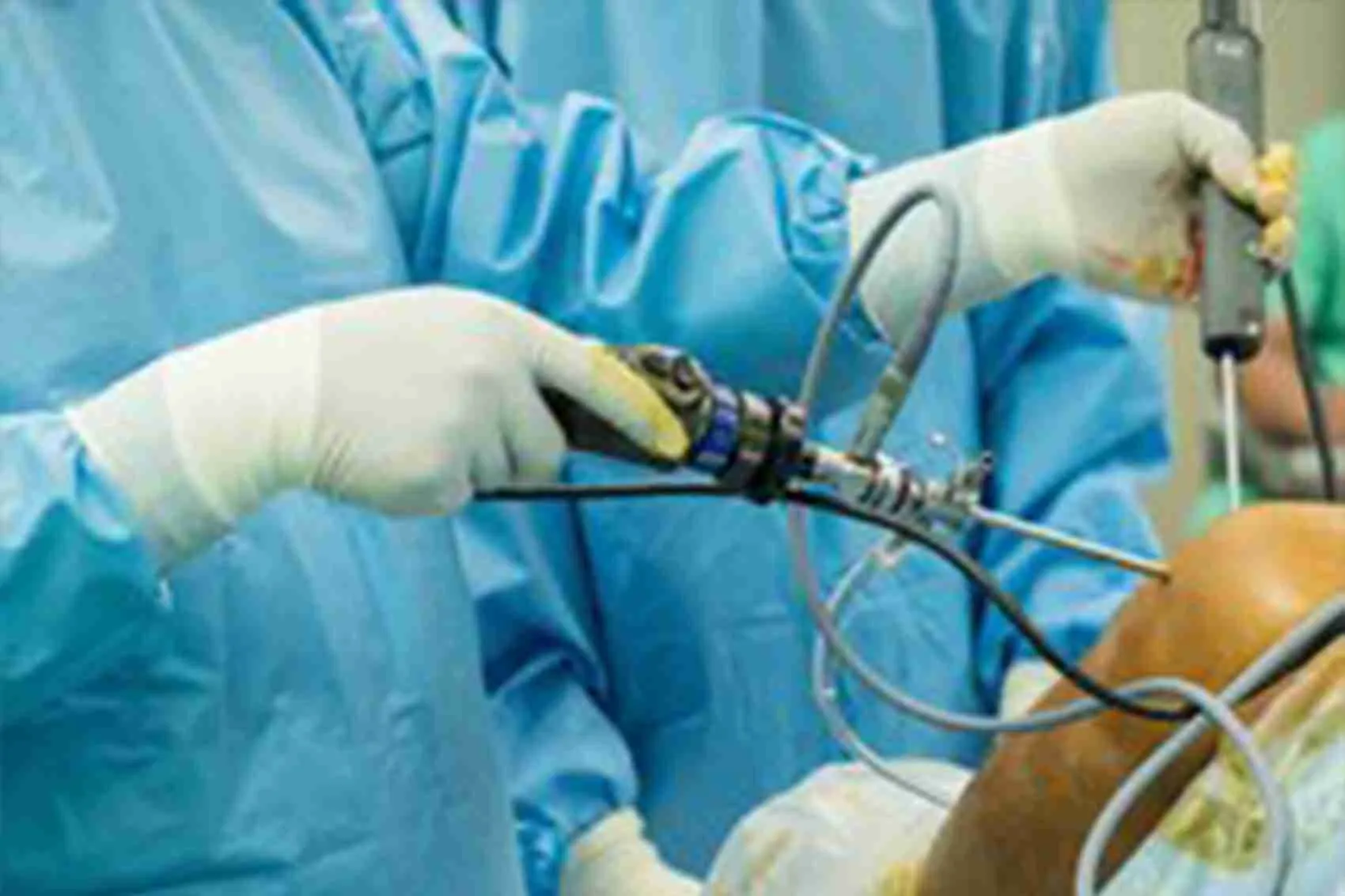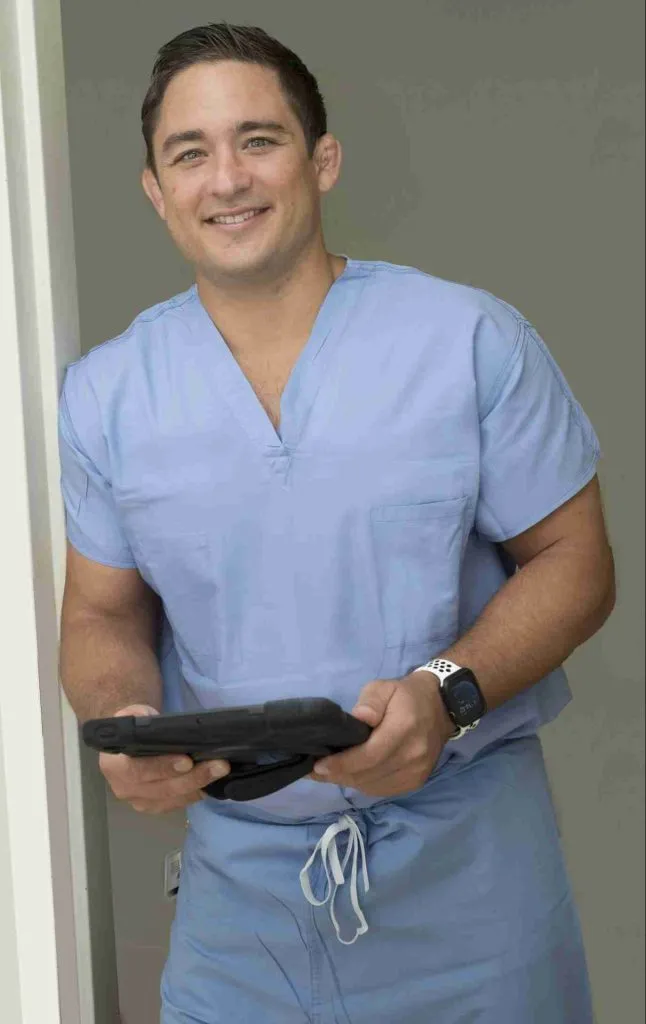
[toc]
Orthopaedic vs. Orthopedic Spelling
One of the first sources of confusion about the specialty is the spelling. Some people spell the word ‘orthopaedic’ while others spell it ‘orthopedic’. Both are correct and are derived from Greek. Orthos means straight and paidion means child. This suggests that orthopedic surgery began by specializing in correcting injuries or malformation of bones in children.
A French professor, Nicholas Andry, coined the word orthopédie in 1741. The English translated orthopédie to Orthopædia, or orthopaedic. Orthopedic is the Americanized version of orthopaedic, although many physicians in the United States use both spellings interchangeably.
What doe FAAHKS and FAAOS mean?
FAAOS stands for Fellow of the American Academy of Orthopaedic Surgeons. It is an additional designation for orthopedic surgeons who complete all of the requirements for membership: The FAAOS designation demonstrates that your orthopaedic surgeon as a leader of your musculoskeletal health team with the level of skills, training, experience and professionalism consistent with the high quality and standards established by the American Academy of Orthopaedic Surgeons.
- Certification by the American Board of Orthopaedic Surgery (ABOS)
- In an practice of orthopedic surgery in the U.S. for at least 36 months immediately prior to induction
- Maintenance of a full, unrestricted, and unlimited license to practice medicine or full-time service in the federal government
- Compliance with the AAOS Standards of Professionalism
- Complete the Active Fellow Member Application
- Membership Committee and AAOS Board of Director Approval of Application
FAAHKS stands for Fellow of the American Association of Hip and Knee Surgeons. It is an additional designation for board-certified FAAOS members who perform a significant number of hip and/or knee replacements annually.
History of Orthopedic Surgery
Some historians trace the origins of orthopedic surgery all the way to primitive human ancestors. Historians found evidence that primitive humans set bones and tried to repair injuries. Historians then trace the practices to the Egyptians, then the Greeks, and then the Romans. The Greeks and the Romans shaped the practice into a more orderly, systematic form of medicine. They began studying anatomy and technique with more rigor than their predecessors. Native Hawaiians have their own form of medicine incorporating many aspects of orthopedic medicine. Read about the history of orthopedics in Hawaii here.
Orthopedic Surgeon Training
In the US, orthopedic surgeons must first attend college and then medical school. Medical school takes 4 years to complete. After medical school, the new doctors attend residency. Residency programs train the new doctors in the specialty of their choosing under the guidance of more experienced doctors. Common specialties include family medicine, emergency medicine, pediatrics, etc. All doctors must attend residency in order to practice medicine, but the length of residencies differs by specialty. Orthopedic surgery is a competitive specialty with a residency that lasts 5 years. After they complete their residency, orthopedic surgeons must pass all licensing and board exams in order to practice as a surgeon. While surgeons can choose to practice directly out of residency, some may choose to complete a fellowship in order to learn even more about a specific area of interest in orthopedic surgery.
What to Look for in An Orthopedic Surgeon in Hawaii
If you have specific health concerns or complicated orthopedic history, you may want to choose an orthopedic surgeon who has completed a fellowship in that area.
While a good orthopedic surgeon is someone who is technically skilled, they should also know how to listen to patients. A surgeon should present the options to you, answer any questions you have, and guide you to the best solution based on your health goals.
Tips on Finding an Orthopedic Surgeon in Honolulu, Hawaii
- Credentials: Research your orthopedic surgeon’s credentials including fellowship training and board-certification. Make sure your surgeon has achieved appropriate education for your orthopedic needs.
- Experience: Discuss with your orthopedic surgeon their experience with the particular surgery
- Hospital Quality: Make sure that you are comfortable at the hospital where you may have your operation. Check the US News site for hospital ratings.
- Communication: Some patients enjoy a friendly doctor, others are looking for a more paternalistic approach.
- Referral: Get a referral from your primary care physician
- Friends and Family: Talk with others you know and find out their experience with their surgeon.
- Website: Check out your doctor’s website, get a feel for how they treat patients.
- Reviews: Research other’s experiences by looking at their reviews online
- Insurance: Not all doctors will take your insurance. Check before making your appointment
- Comfort: If you’re not comfortable with your orthopedic surgeon, look elsewhere.
- Consult: Set up a consult. See if you like what they have to say.
- Second Opinion: Don’t like what you hear? Don’t hesitate to get a second opinion!
- Location: Find out if your doctor practices near you. Dr. Morton is an orthopedic surgeon with locations in Honolulu, West Oahu, and on the Big Island.
- Specialty: Make sure you’re looking for the right specialty for your musculoskeletal needs. Other types of doctors that treat musculoskeletal issues include rheumatologists and pain management doctors.
Summary
An orthopedic surgeon is a specialized doctor who has gone through many years of training and certification levels to help patients manage issues with bones, joints, and connective tissue. While they are experts in surgical techniques, they do not always recommend surgery to all patients. Rather, they recommend conservative treatments, physical therapy, and help patients prevent injury and joint pain when appropriate. When you have a bad injury or nonoperative treatments are not working, orthopedic surgeons have the skills necessary to help you. Talk to your bone doctor, Dr. Morton about your orthopedic concerns today!
Frequently Asked Questions
- Credentials: Research your orthopedic surgeon’s credentials. Make sure your surgeon has achieved appropriate education for your orthopedic needs.
- Experience: Discuss with your orthopedic surgeon their experience with the particular surgery
- Hospital Quality: Make sure that you are comfortable at the hospital where you may have your operation. Check the US News site for hospital ratings.
- Communication: Some patients enjoy a friendly doctor, others are looking for a more paternalistic approach.
- Reviews: Research other’s experiences by looking at their reviews online
- Insurance: Not all doctors will take your insurance. Check before making your appointment
- Comfort: If you’re not comfortable with your orthopedic surgeon, look elsewhere.
Dr. Paul Norio Morton is a Board-Certified Orthopedic Surgeon that practices on Oahu and the Big Island. He treats a broad range of orthopedic conditions including arthritis, sports injuries, hip and knee replacements, trauma, and robotic joint arthroplasty. He believes in treating his patients with a holistic approach – incorporating patient’s desires and expectations into the treatment of their musculoskeletal problems.
You want an orthopedic surgeon who is specialized in joint replacement, joint preservation, sports injuries, and salvage procedures. You should look for someone who is an expert in minimally-invasive techniques, including the Direct Anterior Approach to hip replacement, and is comfortable in modern techniques such as partial knee replacements and robotic-assisted joint replacements. Dr. Morton can provide you with excellent services as a hip surgeon.
You want an orthopedic surgeon who is specialized in joint replacement, joint preservation, sports injuries, and salvage procedures. You should look for someone who is an expert in minimally-invasive techniques, including the Direct Anterior Approach to hip replacement, and is comfortable in modern techniques such as partial knee replacements and robotic-assisted joint replacements. Dr. Morton can provide you with excellent services as a knee surgeon.
Orthopaedic and orthopedic are words that have the same meaning, referring to the same medical specialty. Orthopaedics is the original British word. Orthopedics is the Americanized, more common version. Professional organizations tend to use British spelling, while most physicians in the US use them equally. You can use them interchangeably.

